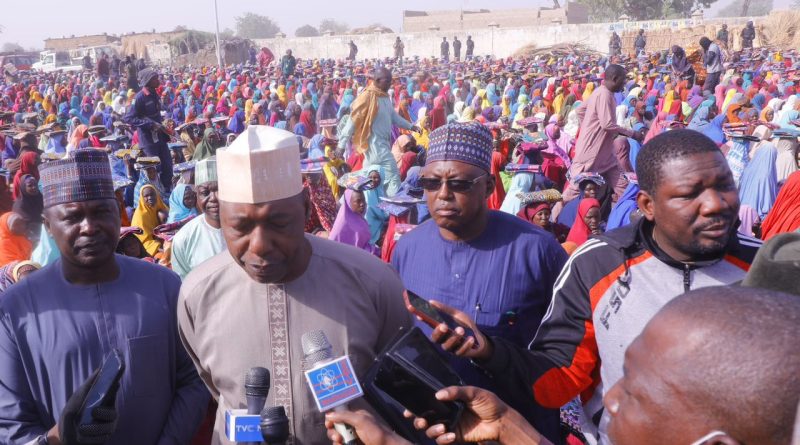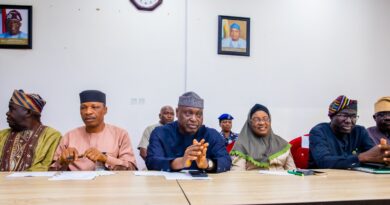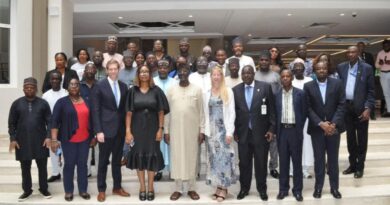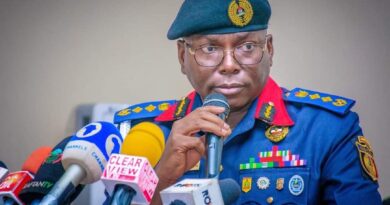Damasak: Zulum Plans Subsidised Petrol For Farmers To Boost Agricultural Activities
By Bukar BOLORI
Borno State Governor, Babagana Zulum, has announced plans to provide petrol for farmers in Damasak at subsidised rates to enhance food security among residents, most of whom are recovering from the over a decade long insurgency.
The move allows Zulum to key into President Tinubu’s agricultural agenda of achieving food sufficiency through enhanced agricultural activities in places affected by the insurgency.
Zulum disclosed the plan on Tuesday, while addressing newsmen after supervising the distribution of palliative to vulnerable women and widows.
“I am here today to see the living conditions of our people, especially those who have recently returned from the Niger Republic due to the ongoing conflict. My administration will do everything possible to ensure that we provide for their basic necessities. In order to provide sustainable means of livelihood to our people, we are taking deliberate steps to enhance agricultural productivity and alleviate the economic burden on farmers in the Damasak region,” Zulum said.
He added, “For the farmers in this community, the primary source of energy has been generators powered by fossil fuels. To alleviate this challenge, I will be providing assistance to the farmers soon. The government will identify two fueling stations and supply PMS and subsidies to reduce the cost of PMS for the farmers. This will enable them to purchase PMS at a lower price, making it more affordable for them to irrigate their farmlands.”
In addition to providing subsidised petrol, Zulum also promised to distribute solar water-pumping generating sets, seedlings, fertilizer, and other agricultural inputs to the farmers.
“Borno State government will also procure solar water pumps, and in addition to this, we will install drip irrigation and sprinkler irrigation facilities in this town,” Zulum said.
Damasak, in northern Borno, is an agricultural hub and one of the pilot sites for Borno’s agricultural rejuvenation.
It was once a stronghold of the insurgents before it was liberated by Nigerian security forces, which enabled the Zulum-led administration to reconstruct and resettle residents and cultivate vast farmlands.




